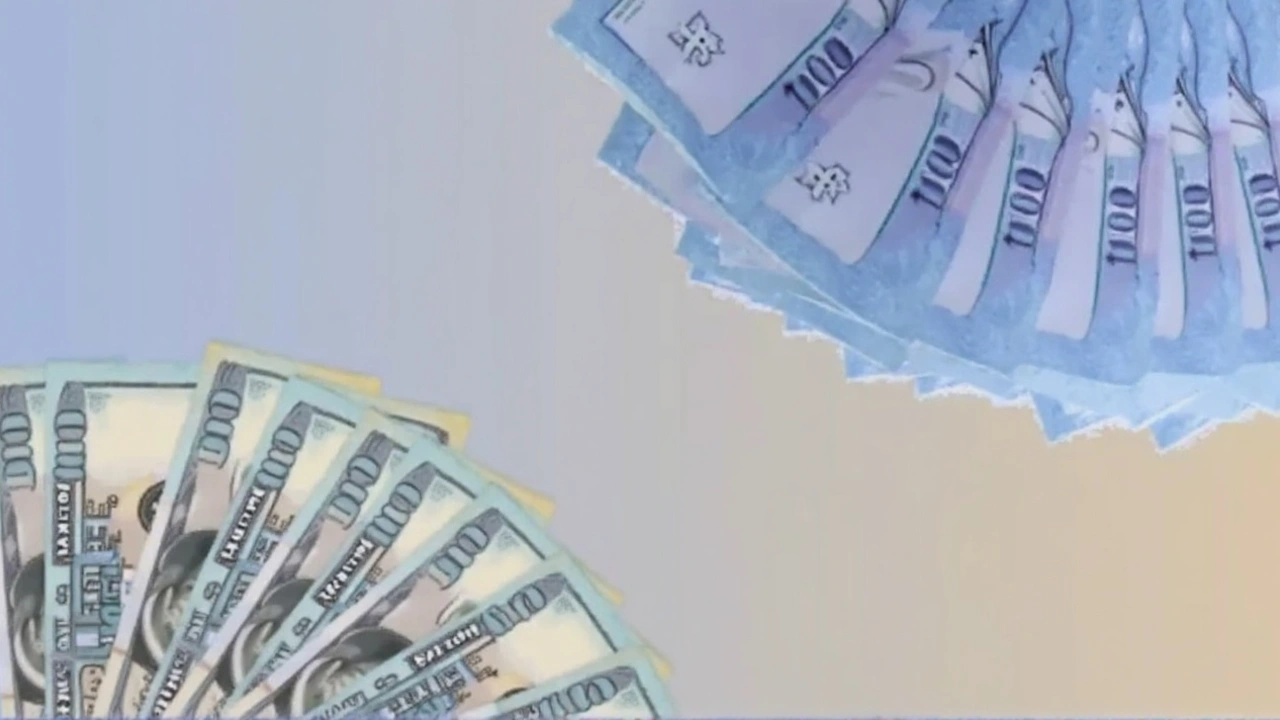Naira's Wild Ride: Black Market vs. Official Rates
Ask anyone trading currency on the streets of Lagos—figuring out the real value of the Nigerian Naira has become a guessing game. On June 3, 2025, if you wanted a US dollar, you'd hand over ₦1,605 in the black market. Just a few days earlier, some buyers were paying as much as ₦1,615. A week before, the dollar briefly dipped to ₦1,574.23. But this chaos wasn’t just with the USD.
Euro buyers also saw major swings, ponying up between ₦1,750 and ₦1,782 per euro at the end of May. The British pound didn't offer any relief, selling anywhere from ₦2,125 to ₦2,140. Even less common currencies like West African francs (XOF and XAF) jumped around daily. These numbers don’t come from fancy financial institutions—they're passed between brokers, regular people, and even businesses desperate for foreign cash.
Central Bank Clings to Old Data as Black Market Soars
Meanwhile, the Central Bank of Nigeria (CBN) has kept its cards close to its chest, with no fresh official rates showing up during this period of turmoil. Historically, the official rate from the CBN tends to move slowly and, in recent months, has often lagged far behind what’s happening on the streets. Right now, there's no sign of that gap closing; if anything, it’s getting wider. For Nigerians traveling, buying goods overseas, or just needing hard currency for business, the black market is where deals happen—official numbers often don’t match reality.
Why the jump? Nigeria’s foreign currency supply remains tight, especially with global investors tiptoeing around the country’s economy. The demand for dollars, euros, and pounds keeps piling up. Meanwhile, routine interventions that the CBN uses—like selling reserves or tweaking regulations—haven’t calmed the waters. This creates a wild west where rates shift daily, and sometimes even hourly, especially if there’s a rumor or official hint about coming policy changes.
Traders warn that those tracking market rates should be careful with user-submitted prices. It’s not unusual for the price given by one seller to differ by ₦10 or ₦20 from another, depending on transaction size and location. Many deals are negotiated on the spot, and the larger the amount, the better the rate you can often get—but only if you know who to talk to.
There’s constant talk about what the next big move will be for Nigeria’s currency: Will the CBN step in more aggressively? Will new policies finally bring some calm to the market? As it stands, anyone betting on stability is up against a market that’s become almost allergic to certainty.


Shelby Mitchell
June 4, 2025 AT 12:41Letetia Mullenix
June 5, 2025 AT 05:11Morgan Skinner
June 5, 2025 AT 23:02Rachel Marr
June 6, 2025 AT 16:11Kasey Lexenstar
June 7, 2025 AT 11:25Trevor Mahoney
June 7, 2025 AT 16:16Jitendra Patil
June 8, 2025 AT 07:39Michelle Kaltenberg
June 8, 2025 AT 13:03Jared Ferreira
June 9, 2025 AT 08:23Kurt Simonsen
June 9, 2025 AT 14:50mona panda
June 9, 2025 AT 19:02Evangeline Ronson
June 10, 2025 AT 10:34Cate Shaner
June 11, 2025 AT 02:07Thomas Capriola
June 11, 2025 AT 23:19Rachael Blandin de Chalain
June 12, 2025 AT 14:37Soumya Dave
June 13, 2025 AT 11:29Chris Schill
June 13, 2025 AT 20:19Bruce Wallwin
June 14, 2025 AT 12:20